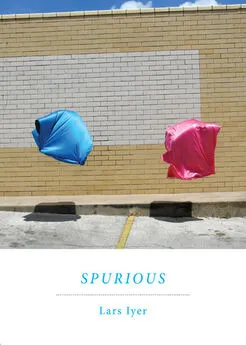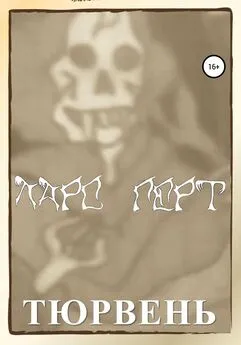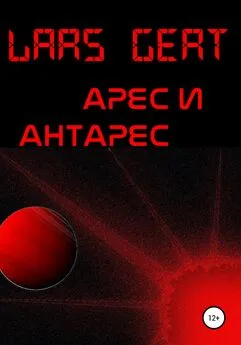Lars Iyer - Spurious
- Название:Spurious
- Автор:
- Жанр:
- Издательство:Melville House
- Год:2011
- ISBN:нет данных
- Рейтинг:
- Избранное:Добавить в избранное
-
Отзывы:
-
Ваша оценка:
Lars Iyer - Spurious краткое содержание
In a raucous debut that summons up Britain's fabled Goon Squad comedies, writer and philosopher Lars Iyer tells the story of someone very like himself with a "slightly more successful" friend and their journeys in search of more palatable literary conferences and better gin. One reason for their journeys: the narrator's home is slowly being taken over by a fungus that no one seems to know what to do about.
Before it completely swallows his house, the narrator feels compelled to solve some major philosophical questions (such as "Why?") and the meaning of his urge to write, as well as the source of the fungus… before it is too late. Or, he has to move.
Spurious - читать онлайн бесплатно полную версию (весь текст целиком)
Интервал:
Закладка:
W.’s tired of listing my affects. How many have we got? Eight general categories, I tell him. He looks around. — ‘Oh fuck it, that will do’.
W. feels ill from all the drinking, he says. Last night, we had a bottle of red wine, then beer, then we drank Tequila from the bottle. Then we finished off the bottle of Plymouth Gin, then a bottle of Cava and then a bottle of Chablis. It was a good Chablis, wasn’t it? W. says he was in no position to appreciate it. He wants some aspirin, he says. — ‘And how are you feeling?’, he asks me. Fine, I tell him. Better than usual. — ‘Any thoughts?’ Not one.
We head out to the coast for the day, and eat fish and chips on the Fish Quay. We wander through the deserted markets. It’s a melancholy sight. There’s a special kind of melancholy to the quayside, W. and I agree. What is it? The sense that it’s all over, it’s all finished, and a whole civilisation has come to an end, which in fact it has.
We watch the big seagulls strutting about, and the pigeons. — ‘What do you feel about pigeons?’, W. asks me. The Romans brought them to England to eat. They crowd on his window ledge every morning, W. says, cooing and flapping their wings. What miserable birds! He prefers the seagulls, of course. They remind him of the sea, he says, and he loves the sea.
On one side of us, the Tyne broadens as it reaches its end; on the other, a passenger ferry at the dock, ready to disembark for Norway. Should we go to Norway? W, wonders. Would they make sense of us there?
‘Your problem is that you fear empty time’, says W. as we head back to the city. ‘That’s why you don’t think’. And then: ‘Thought must come as a surprise, when you least expect it’.
Thought, when it comes, always surprises him, says W. But he’s ready with his notebook, he says, which he keeps in his man bag. That’s why I need a man bag, he says, in case thought surprises me. But I fear the empty time which makes thought possible, says W., so I don’t need a man bag.
The next morning, W.’s flight is cancelled. He’s stranded in my flat for another day and night. This place is a shithole, he says, and starts to read Spinoza to forget the cold and the dark and the damp.
When he reads Spinoza, W. says, he feels beatitude. Beatitude, he says, the third level of knowledge. — ‘You’ve never felt beatitude’, says W. ‘You’re not capable of it’.
W. is a mystic. One day he might become properly religious. — ‘Do you think you’ll ever become religious?’, he asks me. He says that he might. Sometimes he feels on the verge of religion.
W. says The Ethics is the only book he’s ever thought is completely right. — ‘It’s the opposite of your flat’, says W. ‘God, it’s cold. And dark. Why is it so dark? And why does nothing work? Half your lights, for example. Your kitchen. Your TV. Do you just go into the shops and ask for the shittiest thing they have?’, says W. ‘Nothing ever changes for you, does it? There’s no movement forward’.
W. wants to read Spinoza in Latin, but he’s forgotten all he knew of the language. He’ll have to learn it again! But it’s not a chore. — ‘You have to read in the original language’, he says. ‘Of course you wouldn’t know anything about that’. Next he’ll refresh his Greek.
W. recalls our Greek lessons, he on sabbatical, me a young student. — ‘You seemed intelligent then, full of promise’. Of course, I was no such thing, he realised quickly. W. and the others had the answer book and used to crib from its translations in advance. They liked to watch me squirm with my exercises. — ‘Your idiocy was spectacular’, says W. ‘Omoi! , that’s was all you could say. Omoi! omoi! , like a wounded bull’.
For his part, W. has given up learning differential calculus. — ‘It’s beyond me’, he says. Will he ever really understand Leibniz — or Cohen, with his mathematical mysticism? Never mind, he says; he has Spinoza. — ‘Ah, The Ethics’ , he sighs. ‘Beatitude!’, he sighs.
The damp, I say to W. That’s my apocalypse. Does he know I have mushrooms growing from the ceiling? Does he know they’re gathered in the far upper corner of the kitchen? It used to make me shudder, I tell W. I used to hate it. But now …
I’m fascinated by the damp, I tell W. I can’t help it. I go out there again, to the kitchen, to the bathroom. I put my hand on the clammy wall. The damp is calling me. The damp wants a witness to itself. And who am I but the one who sees it, touches it? Who am I but the one with its spores in his lungs?
One night it grew me, I tell W. One night a spore unfolded itself to a make a man, a golem of damp. And the damp wrote its name on my forehead and placed its charm on my tongue …
Somewhere, on the other side of the wall, life has reached a new level, I tell W. Somewhere, damp mutters to itself; damp dreams, there behind the wall. And what will it say when it comes to itself? What will it say when it wakes up?
What will he write about next? W. muses. What’s to be his next project? He’s casting about, he admits it. Wasn’t he supposed to learn Greek this summer? Protestant guilt keeps driving him into the office, he says. In he goes on the bus, thinking he ought to be doing something, but not quite sure what. He sits in the office among the parcels of review copies of books he keeps receiving. There are dozens of them, piled up all over the place. They depress him enormously. He can’t bear to look at them.
For my part, W. notes, I still have a stupid excitement about books. It’s because I’m illiterate, W. says, and because they’re slightly above the level I can understand. Whenever I visit, I insist on opening the parcels and filling up W.’s shelves with fresh new books, reading him the most ridiculous of the blurbs. It must be the bright covers that attract me, W. says, whereas they depress him horribly. — ‘All these books!’, he says, with weary horror. ‘Look at them!’
Whatever happened to W.’s publisher? Once the most generous and gregarious of men, he insisted upon travelling hundreds of miles to visit W. and take him out to dinner. They spent days going over the manuscript, which was properly proofread (not like mine, W. says, which was farmed out to Malaysia). And he’d decided on a full colour cover for the paperback — an expensive undertaking, W. notes. Granted, the final version still had typos on the first page (to his amusement) and even in the blurbs on the back (which he found even funnier), but it was a handsome volume, and one of a series of handsome volumes.
But what’s happened to the publisher? He’s gone out of business, that much is clear. Of course, you could never get hold of his books anywhere, which also amused W. As soon as his book was in print, it was out of print, he said. It was always and already out of print, he said, which was fitting, he said. Luckily, he got a box of free copies, says W., which he sent to his friends. Were it not for that, no one would believe it had existed.
To W., it’s completely inconsequential whether the book is in print or not. You should always publish with friends, he says, and the publisher was a friend. But where is he? He doesn’t reply to emails or telephone calls, W. says. Doubtless there’s no longer a computer in his office, nor a telephone, he says. Doubtless the office has long been stripped and demolished, and he’s sitting sobbing in the ruins.
You should always publish with friends, W. notes, and that’s all he wants from his vanished publisher: a sign of friendship, of their shared failure. That’s all he would want from any of his friends, who are all failures, whether they know it or not.
Why has everything become so absurd? I ask W. Why has it all come apart just at the moment when we might have got somewhere? But W. reminds me of what we both know: that any success we’ve had is premised upon exactly that absurdity.
We’re like captains of the Titanic, we tell each other. W.’s already steered his ship into the iceberg. It’s wrecked — all hands lost. W. remains on the bridge, the last man standing, but there’s not long left. — ‘It’ll be your turn next’, says W. ‘How long do you think you’ll last?’
The iceberg’s looming, I tell W. I’m mesmerised by it. So was he, says W. He knew it was coming and that it could only come. He knew that any success he had had was premised upon this greater and pre-ordained failure. He’s dignified in defeat. — ‘Not like you’, he says, ‘gnashing your teeth and wailing from the rooftops’.
I am getting to know the moods of the damp, I tell W. The kitchen walls, still bare, sometimes seem to glower with anger: they become darker, browner. And then, at other times, they seem to lighten: the damp is in a good mood, or it has been dreamily distracted from the work of dampening. Is it a god that needs to be appeased, and if so, with what kind of sacrifice? But if it is a god, or part of a god, it is an inscrutable one; I follow its moods without being able to understand them.
Sometimes it darkens, it becomes browner, as though gathering itself up. Particularly, high up the wall, like a dark cloud spread all along — the damp becomes more intense. But it is not quite wet, not anymore. The surface is smooth, but not really moist; and it’s not running with water as it used to be. Dehumidifiers work night and day in the kitchen. Night and day, and though pinpricks of damp appear where there was once white plaster, dried out by the heater, the wall never grows wetter. Has the damp been conquered, or only contained?
The damp and I are companions in the quiet flat. Little happens here; the damp does its work as moisture is drawn through the filters of the dehumidifier into its transparent collection tray, and I try to do mine. When I am away, I tell W., I think the damp plunges forward like a dark wave; I can smell it, very thick in the air, when I open the door. Damp in a wave, welcoming me home, thick and brown and wet in the air.
Sometimes I sponge down the walls with a mixture of water and bleach. It needs to be done in the bathroom, too, where black spores of mould are forming. And the wallpaper in the bedroom, too. But these are only symptoms. I touch a cool sponge to the wall as to a fevered brow. Be calm, be still, do not toss and turn. And now I imagine the damp is a dream of the wall, that it is lost in itself somehow, and that if the wall were only to open its eyes and see me, then all would be well. But the wall seems to fall into itself. It’s lost in damp, or damp is what rises up when the wall disappears into its coma.
Sometimes, I tell W., I like to imagine that I could pick the walls up like a Chinese screen and turn them to the sun to dry. To lift up the ceiling and the flat above and let the sun find the wall, and dry it. That would let it live. That would awaken it. As it is, the wall is hunched upon itself and hidden from the sun. It weeps in a corner.
But how long for? I think warmer days are approaching, I tell W., though it was freezing today, and there were a few snowflakes in the air. Warmer days, and the simple honesty of the sun, which will bake everything dry. And if I cannot pick up the wall to turn it around, inner to outer, so there are no secrets anymore, nothing hidden, there is still the slow penetration of the sun, slow, and over the whole outer wall, rendered and unrendered. And one day it will be summer, too, in my kitchen.
The disaster has already happened, said W. during our presentation. That’s what we’re committed to, he said, meaning him and me. It’s already happened! It’s all finished! Can’t you see that it’s finished? But no one agreed with us. We’re quite alone, we agreed afterwards, walking to the train.
Читать дальшеИнтервал:
Закладка:










